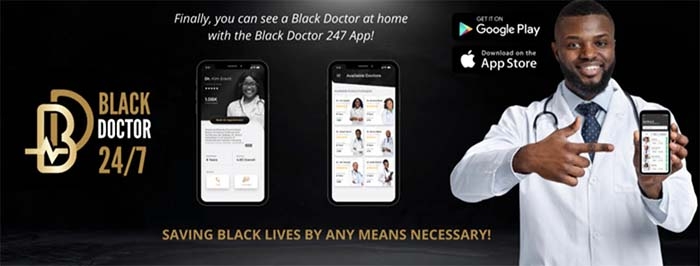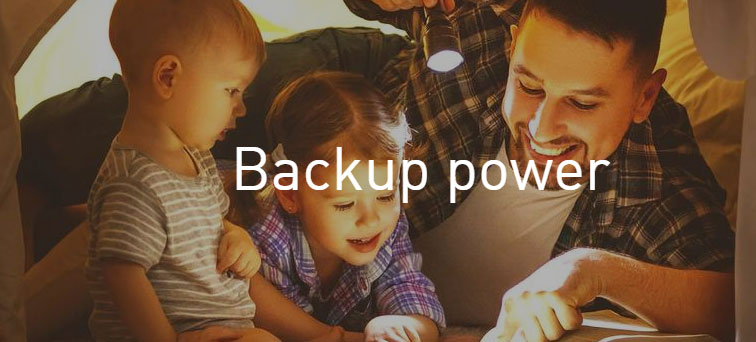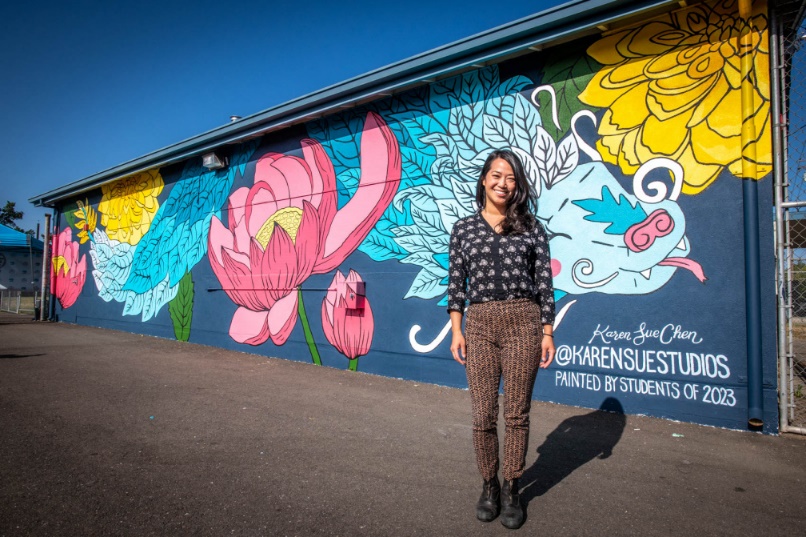
Charlene Muhammad | California Black Media
Dr. Bill J. Releford, a Los Angeles County-based physician and founder of the Releford Foot and Ankle Institute in Inglewood, is putting Black health care in their own hands.
Last week, he launched a high-tech digital tool that he hopes will save lives during the COVID-19 pandemic — and beyond. He also hopes it will turn around the troubling disparities that exist when it comes to the health of Black Americans.
The “Barbershop 2.0,” Releford’s new app, allows users to access Black physicians from anywhere in the world. Dr. Releford says he is building on another project he launched in 2009, the Black Barbershop Health Outreach Program. With that initiative, he worked to screen 500,000 Black men for diabetes and high blood pressure in over 100 barbershops.
Releford says during the development process, he has had to keep some of the features of his software program under wraps before it officially launched last week. In a one-on-one conversation with California Black Media contributor Charlene Muhammad, Releford talked about the benefits of the app — not just for Black men, but for their families and communities, too.
CBM: Congratulations on your creation, Dr. Releford. It appears uniquely positioned to have an immediate effect on Black men’s health. Barbershop 2.0. Tell us what’s it all about?
BR: With my first health initiative for Black men, we were going to Black-owned barber shops across the country, screening men for diabetes and high blood pressure, with nurses and volunteers. Now, we have Covid-19. It has been bittersweet. We know the bitter part very well, but some of the things that have come out of it have been beneficial. The sweet part would be the fact that it’s forced people to leverage a lot of technology that has always been there but has never been optimized. Number two, we are launching the Black Barbershop Physician Network, where you can see a Black physician, on your phone in the comfort of your home.
Health disparities have a number of driving factors. One of the most prominent driving factors, other than the racism, of course, is that studies have shown that
African Americans prefer to get care from Black doctors, and studies also have confirmed that outcomes are better when patients are treated by Black physicians, particularly Black men. Study results that that were particularly granular in their data showed that White doctors tend to make less eye contact with Black patients as compared to their White patients. White doctors also touch their Black patients less than their White ones. One thing that I have been hearing over the decades in practice, is a Black patient will come to me and say, ‘Wow! We’re so glad to see you, because they act like they didn’t want to touch me at such-and-such office. I hear it all the time, not knowing that there was some scientific confirmation of the things that people were just saying to me organically.
How does the app work?
You’ll be able to see a Black physician on your phone, in the comfort of your home, using telemedicine. We also have a remote vitals component, where I can check your respiration, your heart rate, and your oxygen saturation from your phone, just by downloading the app. We can check your vitals anywhere, around the world — whoever downloads this.
Is this just for Black men?
It’s not just for Black men, but the focus, our main brand has been, of course, dealing with health disparities, focusing on African American men. It’s available to anyone who wants to use the application, but a lot of our messaging is related to African American men.
When is your launch?
The app was fully operable on December 19, however, I needed to give my myself a little time to get the kinks out. It launched last week on all major digital app stores.
The urgency is now. It’s a health risk just being Black in America. We do live in the most technologically advanced country in the world. However, African
Americans usually are not beneficiaries of that technology until maybe it’s antiquated or never at all. So, we know the bittersweet part, but the sweet part of this is I’m hoping we can start having some genuine conversations about our health.
How did you come up with this idea, and what was the draw for Black physicians?
Number one, they’re passionate about our people, and this is a program where money is not the driving force. Love has to be the driving force first. People first, then money, then things. I discourage people to join our network if their first question is, “well how do I get paid?” That’s not going to be for them. Although there’s money to be made, I don’t want that to be your primary objective. Before you ask for money, tell me how you can serve, first. How can you add value, first. Or add value, then ask.
So, there is a spiritual component so to speak?
It’s got to be! It’s got to be. So, this is a program that’s not for everybody. An old man told me, “Men count numbers, but God makes numbers count.” I’m passionate about this. Not just me, but for me to serve.





